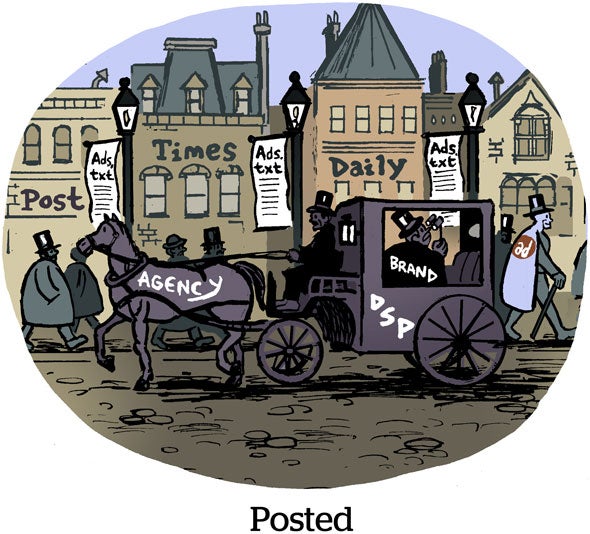Here’s today’s AdExchanger.com news round-up… Want it by email? Sign up here.
The Go-To-Marketer Plan
Marketers are getting thirstier, The Wall Street Journal reports.
That isn’t new. (This is the industry that gave birth to Shingy and Gary Vaynerchuk.)
But there’s been a marked uptick in CMOs using brand-building and content-writing services to try and climb the pyramid – and they see their own personal social accounts, LinkedIn in particular, as key to their ascent.
LinkedIn is the hub for both ambitious young strivers and those who’ve already claimed a corner office. But if you get the feeling that a lot of LinkedIn posts sound the same, it’s not just you. Turns out a lot of them are ghostwritten by the same anonymous freelancers.
At the other end of the spectrum are TikTok and Twitter, the social platform of choice for many startup founders, especially in DTC and ecommerce. The savviest social media ad buyers still favor YouTube and Meta with their ad spend, but Twitter and TikTok are the go-tos for biz dev and self-promotion.
Regardless of the platform, however, CMOs should be careful to make sure their posts are supporting corporate goals, not just promoting themselves, says Jonathan Mildenhall, founder of a brand consulting firm and the former CMO of Airbnb. Otherwise, “it would become a political hot button inside the C-suite,” he said. “Is the CMO building for vanity or are they building because of corporate reputation?”
Holi-Dazed And Confused
Roku has cut its headcount by 7%, accounting for 200 jobs in the US, as it navigates “current economic conditions in our industry,” according to a statement.
The company warned of the coming cuts during its earnings report two weeks ago. To be fair, practically every major media company – from news publishers to Snapchat, Meta and Amazon – are making major cuts, as Procter & Gamble and other big brands say they’ll spend less on marketing next year.
What’s unexpected is that the economic blows are buffeting media companies and brands while ad agencies and ad tech pureplays appear largely insulated. Put another way, they’re performing comparatively well on the stock market.
This begs the question: Are the big players downsizing because they hired too much and too fast in 2020 and 2021? And are US consumers losing their purchasing power due to inflation and macroeconomic issues?
It’s hard to say for sure.
What is certain is that “this is not a normal holiday season,” Roku CEO Anthony Wood told investors earlier this month. The first thing brands do during a downturn: They “cancel their ad budgets,” he said.
Wood also brushed aside the notion that middlemen vendors are doing better than expected, noting that the advertisers that curtailed their spending with Roku “are not spending with anyone.”
Leave Those Kids Alone
A cadre of consumer protection organizations sent a joint petition to the Federal Trade Commission last week, urging the agency to adopt a more aggressive approach to regulating online platforms when it comes to exposing minors to harmful content, Law360 reports.
Platforms are insulated from liability for user-generated content, though (hi there, Section 230), which is why the enforcement of UGC issues typically doesn’t get very far.
But now, advocates are going after the platforms themselves for their design practices. Algorithmic features designed to maximize the amount of time people spend online can become an issue when we’re talking about kids, the petition argues. The petition also calls out the fact that there’s a vast amount of data that gets collected about children as they use the internet.
“Social media platforms deploy tactics that manipulate minors into handing over their data,” according to Harry Kinkle, policy counsel at Fairplay, one of the organizations that helped draft the petition.
Consumer protection and privacy orgs claim that these online “tricks and traps” are a direct violation of Section 5 of the FTC Act, which empowers the commission to penalize “unfair and deceptive behavior.”
But Wait, There’s More!
How in-game ads are expanding into consoles. [Adweek]
How streaming TV is prepping for a recession. [Ad Age]
Digital entertainment and media platform Azerion acquires programmatic agency and trading desk Hybrid Theory. [release]
The advertiser fallout at Twitter continues. [Marketing Brew]
Zynga’s Rollic buys German mobile game studio Popcore. [VentureBeat]













